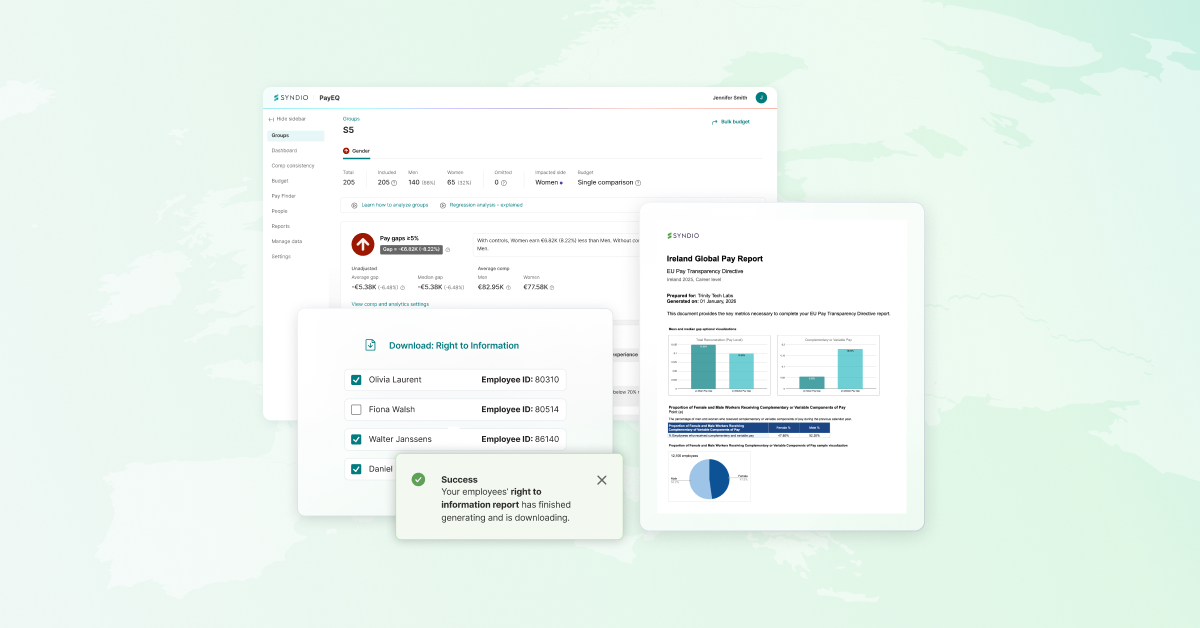“Gender pay gap analysis” is a scary phrase for many businesses. The public, employees, and the plaintiffs’ bar have been pressuring organizations large and small to understand and address their pay gaps. Meanwhile, legislation continues to expand and evolve across the U.S. as more states enact pay equity provisions or expand on laws already on the books.
With an eye on both equal pay and increased transparency, Colorado is one such state, signing its new Colorado Equal Pay Act into law in late May. There are several components of the law that mean big changes for your business. The good news is, the law does not go into effect until January 1, 2021, so let’s discuss how best to prepare your business to comply with this new law today.
Breaking down the Colorado Equal Pay Act
Colorado’s equal pay law seeks to protect employees from wage discrimination based on gender, but like most state pay equity laws, the devil is in the details. According to the law, businesses cannot pay employees of different sexes different rates for substantially similar work, unless those differences can be explained by certain gender-neutral job-related factors.
What’s the difference between “equal pay for equal work” and “equal pay for work of equal value”?
This poses two questions. First, what is “substantially similar work?” For Colorado, substantially similar work is viewed as a composite of skill, effort and responsibility, regardless of job title. In other words, you may have two distinct job titles (e.g., Backend Engineer and Frontend Engineer) in which there is substantial overlap in tasks performed and typical work (e.g., write and debug code, exempt status, non-management role, etc.) that would be viewed as substantially similar under the law, even if your organization distinguishes them by title or other organizing system.
The second key question is, what are “gender-neutral job-related factors?” Colorado’s new law specifies a few explicitly: seniority system, merit system, and earnings measured by quantity or quality of work. However, there is also a catch-all category (like many other states have) that refers to “job related factors necessary for the business.” Some examples of these are travel requirements, educational attainment, relevant experience, location, etc.
How to determine compensation for different positions
The key consideration for your business related to the Colorado Equal Pay Act is to understand the factors you use to set and determine compensation that are necessary for the work being performed and not tied to employees’ gender. Typical neutral, job-related factors include experience, skills, education, responsibility, location, and tenure.
Note, these factors likely vary across the substantially similar groups of employees described above, and there are no real “best practices” here. If every other company in the world pays people more the longer they are employed, but your organization does not, tenure on the job would not be an applicable factor to apply.
The costs associated with gender-based pay disparities can be substantial. They include economic damages (e.g., back pay), equitable relief (e.g., reinstatement or promotion) and legal fees for the aggrieved party or parties. The good news is, the Colorado Equal Pay Act contains a good-faith exception reducing potential payouts for employers who can prove the salary disparity was unintentional.
What employers need to know about the Colorado Equal Pay Act
What does this mean for you? It means, before the law becomes effective, leverage a pay gap solution to complete a thorough compensation audit of your organization. Technology solutions, such as Syndio’s PayEQ software, empower you to analyze, resolve and monitor pay inequities across your business to stay compliant with Colorado’s Equal Pay for Equal Work Act.
Technologically forward solutions are fundamentally different in many key ways from the antiquated “one and done” model in which your company’s sensitive data are shared with lawyers, labor economists or statisticians, they run analyses on hard-drives, and then send you back a PDF or spreadsheets with reports several weeks or months later. It is slow, potentially less secure, inefficient and ineffective.
The law doesn’t just address pay gaps after the fact, but also seeks to curb wage discrimination before it begins. First, employers are banned from asking applicants about their salary history. Colorado is the 18th state to enact a salary history ban – a practice becoming more popular due to concern salary history may perpetuate wage suppression for women and minorities. Additionally, all opportunities for promotions must be announced to the entire employee population at once and all job postings must now publish salary ranges that contain the eventual chosen pay for that job.
How to prepare your organization for the Colorado Equal Pay Act
How can you best prepare for this new level of augmented transparency? First understand what your communication strategy will be internally (for promotions) and externally (for postings). Secondly, ensure you are utilizing data to provide pay ranges that not only meet the market need, but also keep you in compliance with pay equity. Syndio’s Pay Finder solution helps you do just that by setting pay for your new hires, promotions and transfers that won’t negatively impact pay equity for your business.
If you’d like to understand how our technology solutions and vetted methodologies are helping businesses like yours with their pay equity efforts, request a demo today.



